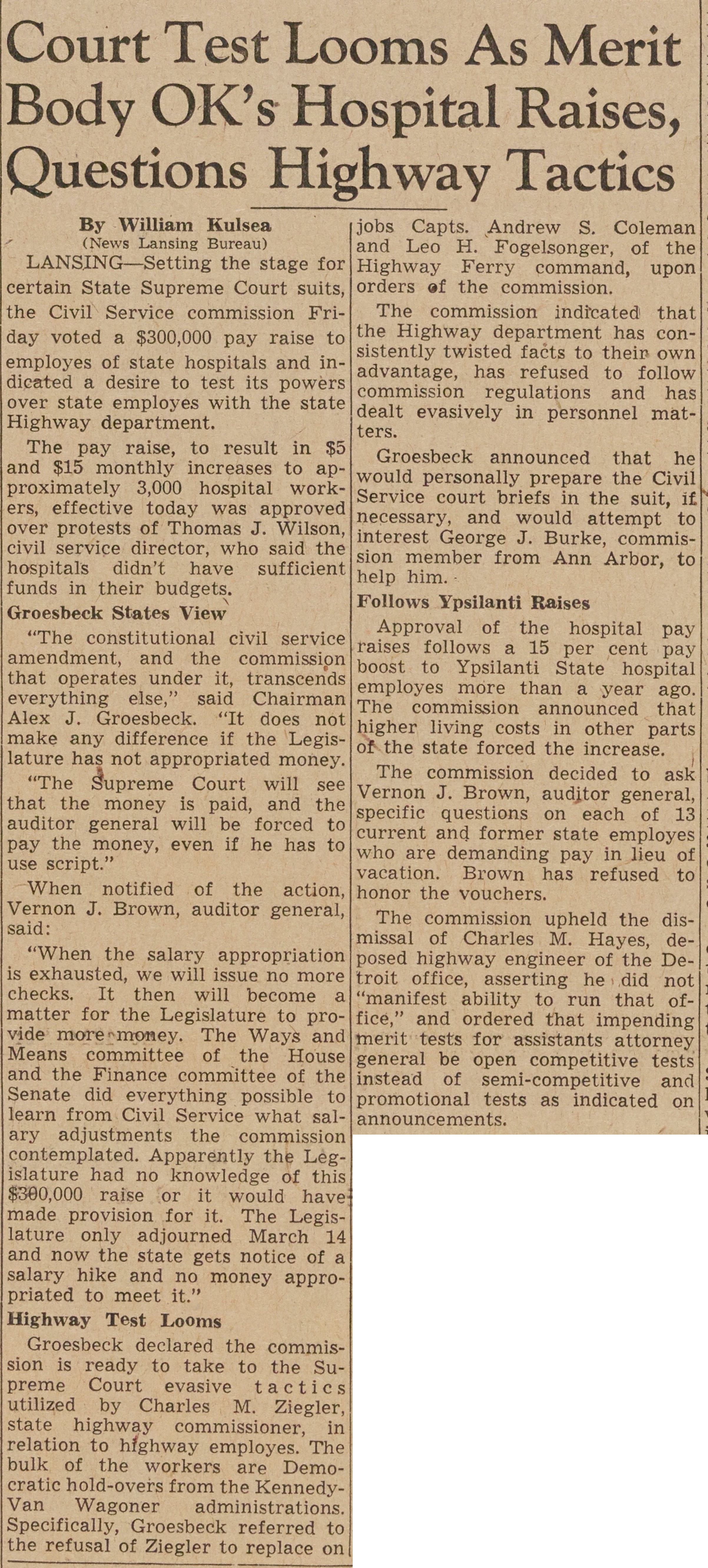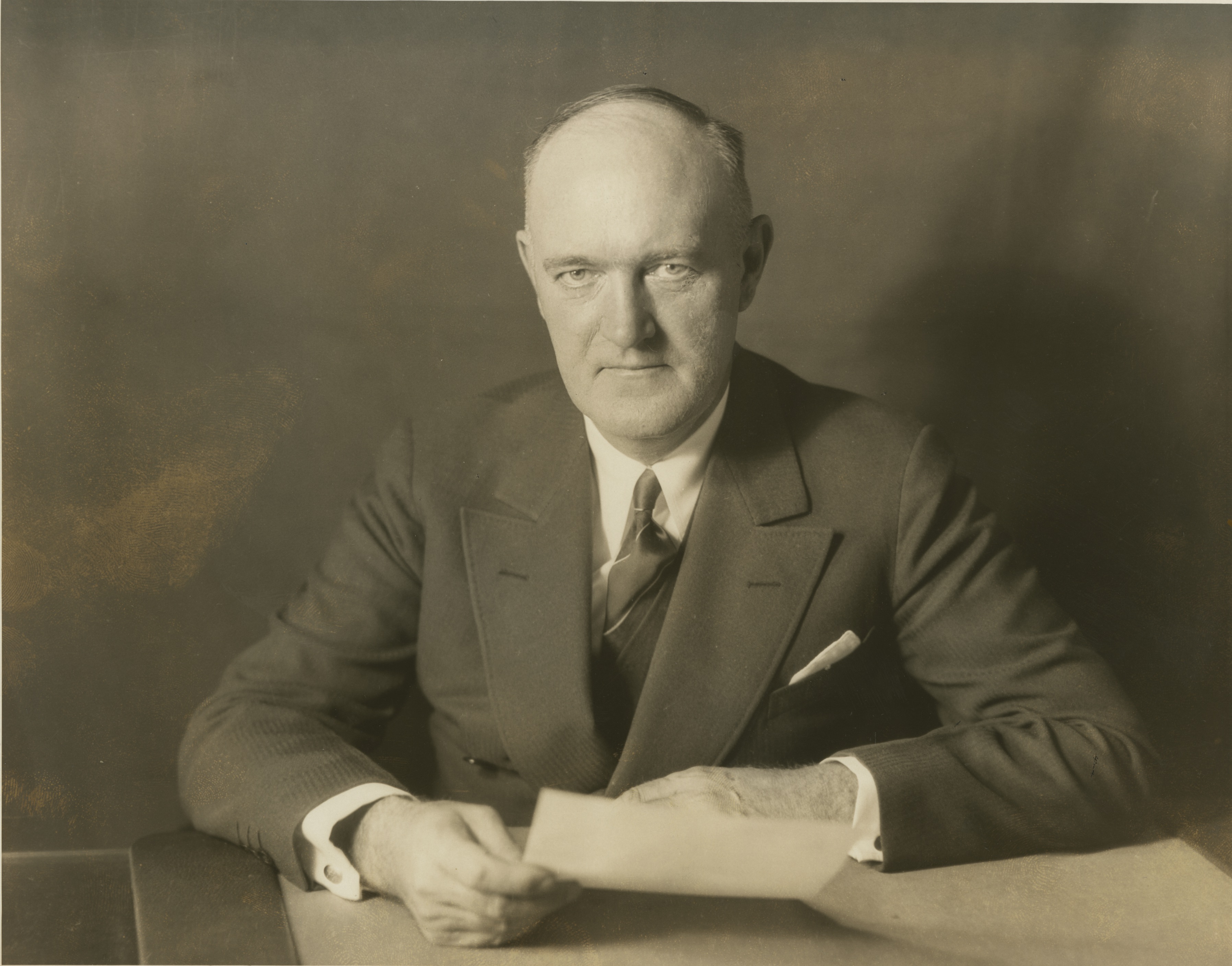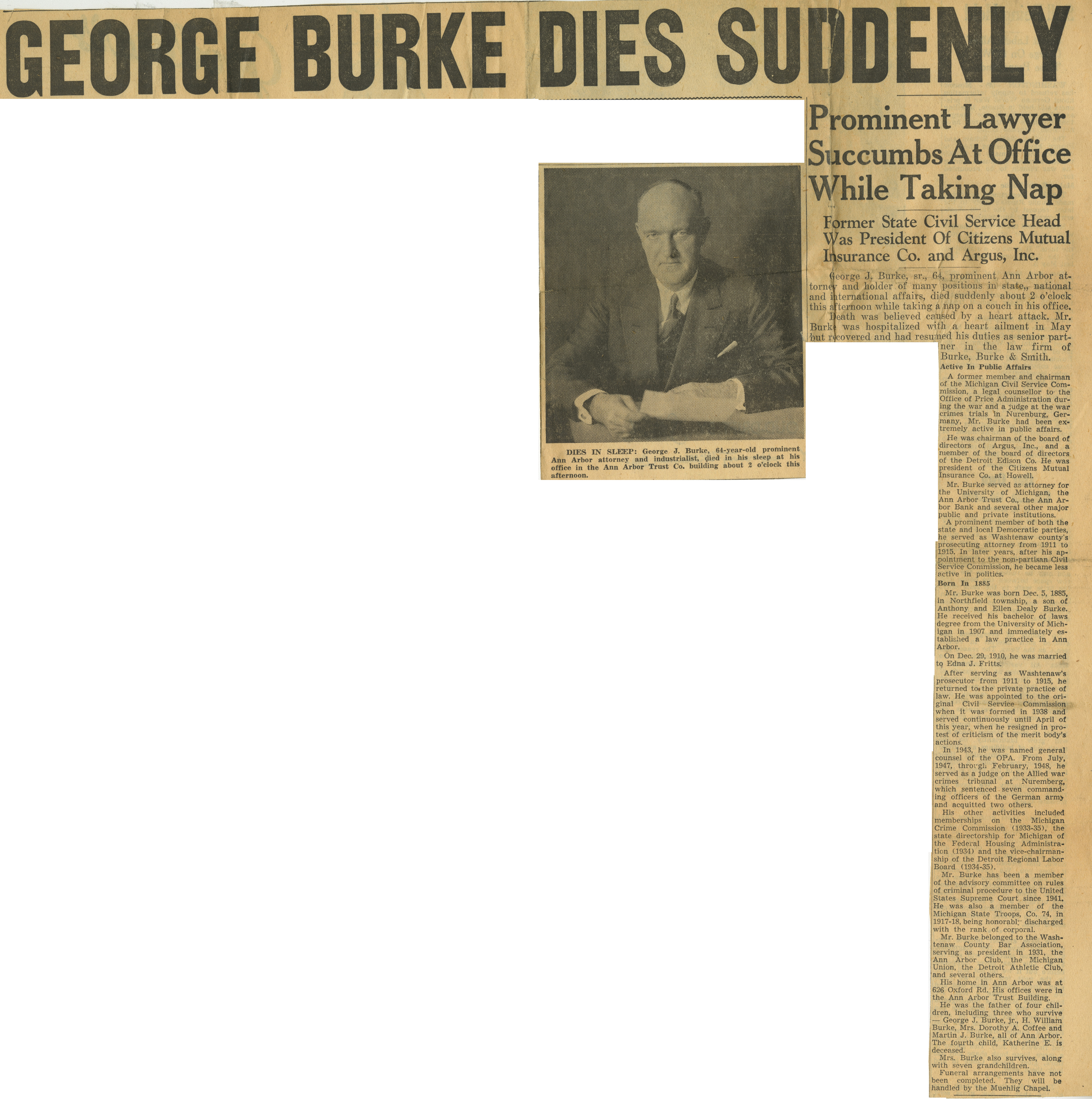Court Test Looms As Merit Body OK's Hospital Raises, Questions Highway Tactics

Parent Issue
Day
1
Month
April
Year
1944
Copyright
Copyright Protected
George J. Burke Sr., April 14, 1943 Photographer: Eck Stanger

Year:
1943
Published In:
Ann Arbor News, April 14, 1943
Caption:
George J. Burke (above), Ann Arbor attorney and member of the State Civil Service Commission, is being considered for appointment as chief counsel of the Office of Price Administration in Washington, according to dispatches from the capital.
Ann Arbor News, April 14, 1943
Caption:
George J. Burke (above), Ann Arbor attorney and member of the State Civil Service Commission, is being considered for appointment as chief counsel of the Office of Price Administration in Washington, according to dispatches from the capital.
Copyright
Copyright Protected
- Read more about George J. Burke Sr., April 14, 1943
- Log in or register to post comments
Mrs. Burke Sr. Succumbs At Age Of 76

Parent Issue
Day
2
Month
March
Year
1965
Copyright
Copyright Protected
- Read more about Mrs. Burke Sr. Succumbs At Age Of 76
- Log in or register to post comments
Services For George Burke To Be Friday

Parent Issue
Day
4
Month
October
Year
1950
Copyright
Copyright Protected
- Read more about Services For George Burke To Be Friday
- Log in or register to post comments
George Burke Dies Suddenly

Parent Issue
Day
3
Month
October
Year
1950
Copyright
Copyright Protected
- Read more about George Burke Dies Suddenly
- Log in or register to post comments
Successor To Burke Chosen

Parent Issue
Day
26
Month
April
Year
1950
Copyright
Copyright Protected
- Read more about Successor To Burke Chosen
- Log in or register to post comments
Resignation Of Burke Accepted

Parent Issue
Day
18
Month
April
Year
1950
Copyright
Copyright Protected
- Read more about Resignation Of Burke Accepted
- Log in or register to post comments
Burke Quits State Merit Board Post

Parent Issue
Day
17
Month
April
Year
1950
Copyright
Copyright Protected
- Read more about Burke Quits State Merit Board Post
- Log in or register to post comments
Burke Given New Term On Merit Board

Parent Issue
Day
10
Month
February
Year
1949
Copyright
Copyright Protected
- Read more about Burke Given New Term On Merit Board
- Log in or register to post comments